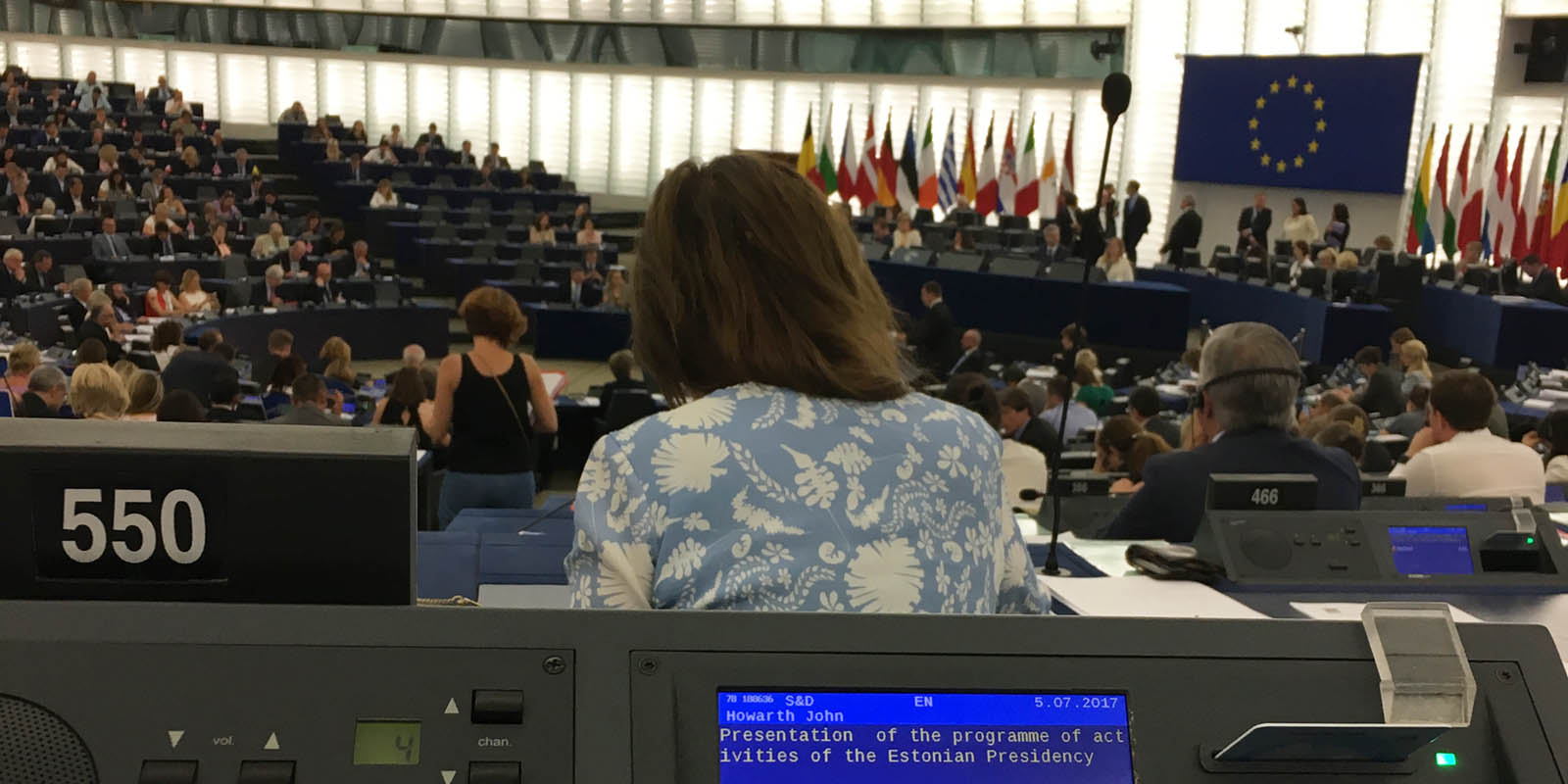Above: My view of the Strasbourg Chamber, ready for the first set of votes
Getting to Strasbourg is notoriously difficult and is best planned well in advance.
To take my seat as soon as practical I didn’t have that luxury and the logistics meant that I arrived at the Parliament after EU Commission President, Jean-Claude Juncker’s, outburst describing the Parliament as ‘ridiculous’ as only a handful of MEPs had turned up to hear his wise words.
Like most national Parliaments there is a lot going on while the European Parliament is in session and Members go into the Chamber to speak on particular debates, listen to reports and raise questions but are often occupied with meetings, groups and various committees elsewhere in the building. Also, because the Parliament’s votes take place in blocks, there is no running around to walk through doors when bells ring. Mr Juncker knows this very well – he had a seat in the Parliament he never took up while he was Prime Minister of Luxembourg. There are those who say that his outburst was intended to deflect attention from a later report focussing on tax avoidance. Surely not - but there certainly wasn’t much coverage of that item.
Ironically, had I been able to get there I would have liked to listen to Mr Juncker, but I expect this won’t be my only chance. It does amaze me however that he has the front to still be around. On his watch the EU lost one of its largest member states. At least David Cameron had the decency to resign.
Votes, votes and votes and votes
As things worked out my first vote in the Parliament was on a highly technical matter placing further limits on substances that deplete the ozone layer. Just the sort of thing that can only be effectively done by a trans-national body like the EU and just the sort of rule that British companies will have to comply with if they want to sell their stuff into the EU and over which, should Britain leave as currently planned, we will have no influence.
Back to the Drawing Board
Later in the session the Parliament threw out the Commission’s proposed work programme for 2018. The detail isn’t important, though I find the argument that this was some kind of petty revenge prompted by Mr Juncker’s earlier outburst a little fanciful. The political groups in the Parliament just don’t work like that. The fact is that the Commission just hadn’t been able to put together a programme that commanded a consensus – but they have got plenty of time to take note of the view of the Parliament and think again.
E-Stonia
Estonia, a small state of 1.3 million people, is taking over the Presidency of the Council on Ministers – the rotating ‘chair’ of the 28 EU Governments. Estonia has an impressive record as a county, particularly in science, technology and in educating its citizens to a high standard. They have interesting ideas and things to say about technology, how the internet should serves society and a whole lot of other things. They also have intriguing ideas around a concept of e-citizenship – about which I want to find out more. Estonia, like many small countries, seems to see the EU as a protector of rights and freedoms. They have, perhaps, a better perception of these things having not so long ago been rather less than free.
Turkey – not joining any time soon
Speaking of not so free, some readers will remember the disgraceful adverts peddled by the Leave campaigners stating that Turkey would be joining the European Union and that meant umpteen million Turks would be coming to the UK. This was just another lie put about to deceive people worried about migration into thinking that getting out of the EU was the answer. Well whatever Boris Johnson says, Turkey won’t be joining the EU any time soon – if ever. The Parliament sent a very clear message making it clear that the restrictions on democratic freedoms and the retreat from the values to which member states of the EU must subscribe that President Erdogan has implemented are incompatible with EU membership. The situation in Turkey should be of great concern to the democratic world.



